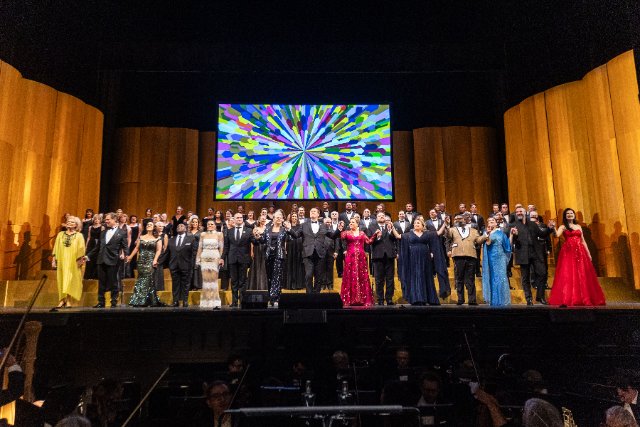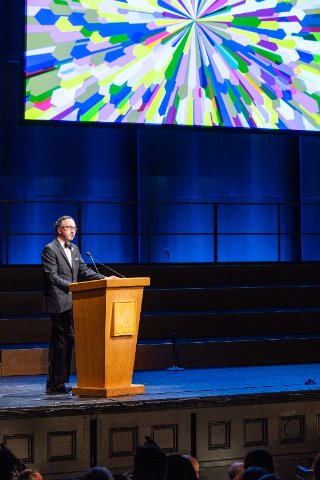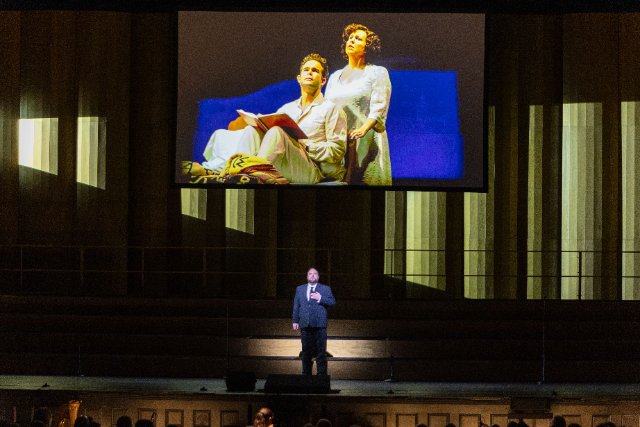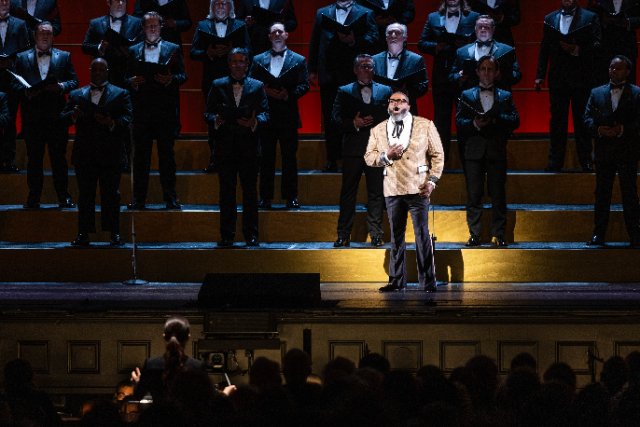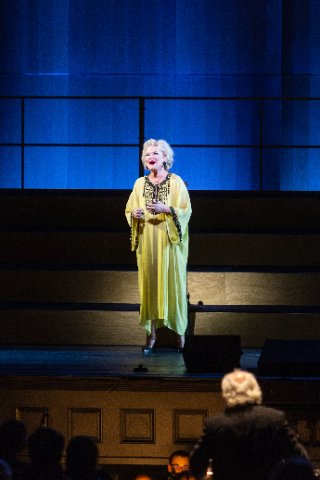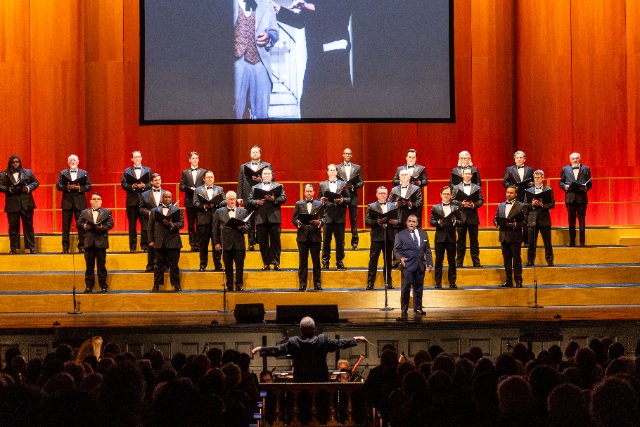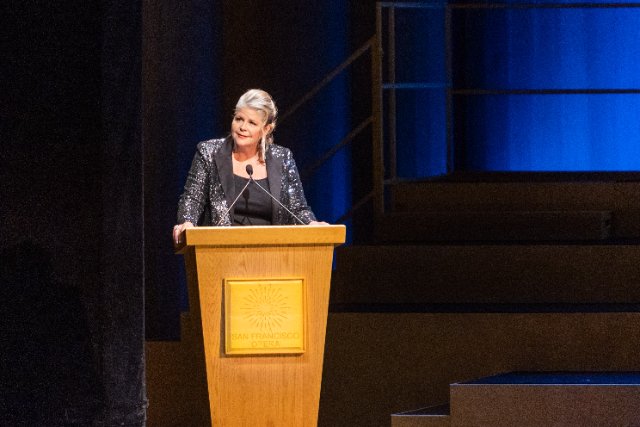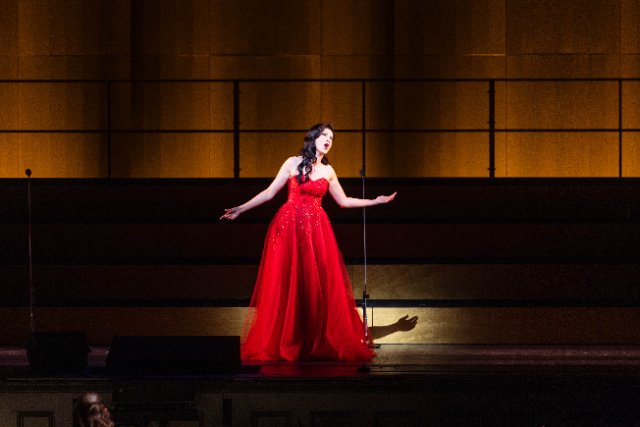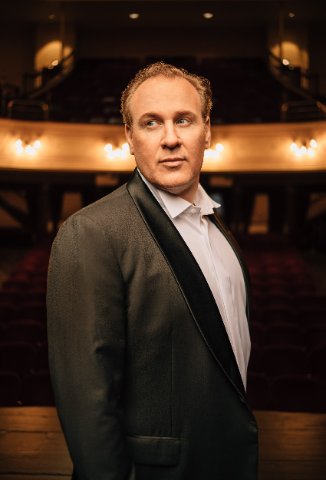San Francisco Opera 100th Anniversary Concert
America's Third Oldest Opera Company Celebrates Its First Century
By: Victor Cordell - Jun 18, 2023
San Francisco Opera celebrated its centenary at War Memorial Opera House with a grand concert of 21 operatic pieces, performed by 15 principals and the company’s orchestra and chorus. Artistic Director Eun Sun Kim, past Artistic Director Donald Runnicles, and past Principal Guest Conductor Patrick Summers shared the baton. Matthew Shilvock, only the seventh General Director of the company, hosted the glorious event.
The company was founded by Gaetano Merola, an immigrant from Naples, Italy, who would lead San Francisco Opera during his vital 30-year stewardship. He would cobble initial financial support from Italian businessmen in the community to create the company, and his expected audience included working class immigrants from Genoa, Lucca, Sicily, and elsewhere in Italy. Merola would also lead the charge to build War Memorial Opera House, one of the several largest opera houses in the world.
Readers would be forgiven for thinking that it was the company that Giacomo Puccini built. Not only had he been the dominant force in opera, especially Italian, for decades before, but his works have held sway at San Francisco Opera from its outset. The composer’s “La Bohème” was the company’s first production in 1923. Further, it was “Tosca” that premiered its new home, War Memorial Opera House in 1932, as well as the venue’s 1993 relaunch after the Loma Prieta Earthquake seismic retrofitting, and its 2021 relaunch after the pandemic pause. What’s more the three most frequently produced operas by the company have been “La Bohème,” “Tosca,” and “Madame Butterfly,” while “Turandot” ranks 19th.
Needless to say, this international powerhouse company has embraced the full spectrum of opera, as evidenced by the celebration program. Excerpts came from early Baroque through Classical and Romantic to modern idiom operas; from the popular and obscure; and in six different languages.
San Francisco Opera has always attracted the world’s finest artists from the likes of Gigli and Flagstad in the earliest years and Pavarotti and Sutherland later in the 20th century, to the stars of today and tomorrow. At the same time, it has always encouraged and developed American opera singers. The artists in the celebration were predominantly American, and six were graduates of the company’s vaunted Merola and Adler programs for promising singers.
As expected, all of the performances were exquisite, and selecting highlights from the program or excerpts to comment on is highly subjective. The opening number is one of the finest orchestral pieces in opera’s repertory, Wagner’s Prelude from “Die Meistersinger von Nürnberg” with its rich and mellow sound. Another remarkable performance was ‘Liebestod’ from “Tristan und Isolde,” the first Wagner opera performed by the company in 1936. Nina Stemme, who currently performs magnificently in the company’s production of “Die Frau ohne Schatten” soared with intensity as this love-death anthem rose to its climax.
Puccini is represented twice in the program. Christian Van Horn powered through the vile Scarpia’s signature ‘Va, Tosca…Te Deum’ with its contradictory themes of carnal lust and religious fervor. The aria was supported by potent and halting religious-themed music and a chorus that Van Horn ably sang through. The other offering was from one of the composer’s less performed but interesting works, ‘Ch’ella mi creda’ from “La Fanciulla del West.” Since San Francisco was the staging point for the Gold Rush, the setting of the opera is a natural for the company. Brandon Jovanovich nailed Puccini’s dark and very challenging tenor aria, as he did ‘Prosti nebesnoye sozdanya’ from Tchaikovsky’s “The Queen of Spades.”
The importance of Gluck’s “Orphée et Eurydice” derives from its representing the transition from Baroque to Classical music styles. Daniela Mack, who currently stars in the company’s “El Último Sueño de Frida y Diego” sang ‘Amour viens rendre à mon âme.’ It flourishes from beginning to end, and Mack’s stunningly strong vibrato stayed the course throughout.
The chorus had several opportunities to shine on its own and to support principals. Its most masterful offering was one of the rare opera pieces that entered common currency. In Verdi’s “Nabucco,” Israelites lament the loss of their homeland in the mournful number ‘Va, pensiero.’ But the choral piece was adopted in Italy as an anthem during the country’s unification in the mid-19th century and has been frequently revived as an expression of patriotism.
In a nod to Broadway musicals, which are occasionally represented on the War Memorial stage, stalwart Patricia Racette sang the lovely ‘Losing my mind’ from Stephen Sondheim’s “Follies.” Full of reflection and with intelligently recurring lyrics, the soprano sang with a hand mic, to simulate the amplified singing used in musical theater. The result was a clear and relaxed embrace of a beautiful melody sung by a beautiful voice.
Although the program did not include any ensembles, it did have two duets. Power tenor Michael Fabiano and honey-toned lyric soprano Ailyn Pérez sang an assertive ‘Vicino a te’ from Giordano’s “Andrea Chénier,” which played in the company’s very first season. The versatile Van Horn and a radiant Heidi Stober gave a delightfully humorous and conflicted rendition of ‘La ci darem la mano’ from Mozart’s “Don Giovanni.”
Many people would not have expected the San Francisco Opera to achieve 100 years. But the title of another Sondheim song from “Follies” says it all - ‘I’m still here.’ Opera has been criticized as being archaic, elitist, and incomparably expensive as a performing arts form. But its creation represents the apotheosis of music, the integration of all of its elements, and the performing requires uncommon skill and dedication to produce voices that sing to the heavens. As President Joe Biden said in his congratulatory letter to the company and its patrons, “Little can capture the drama of the human experience or convey the sounds that touch our soul like opera.”
Though the aforementioned criticisms are valid, San Francisco Opera has contributed greatly to bringing this beautiful art to the broad public through educational outreach to schools, free performances in parks, simulcasting to accessible outdoor venues, and more. Just like the endurance of Shakespeare’s works, there’s every reason to believe opera will continue to survive, and that San Francisco Opera will be around for its bicentennial and beyond.

